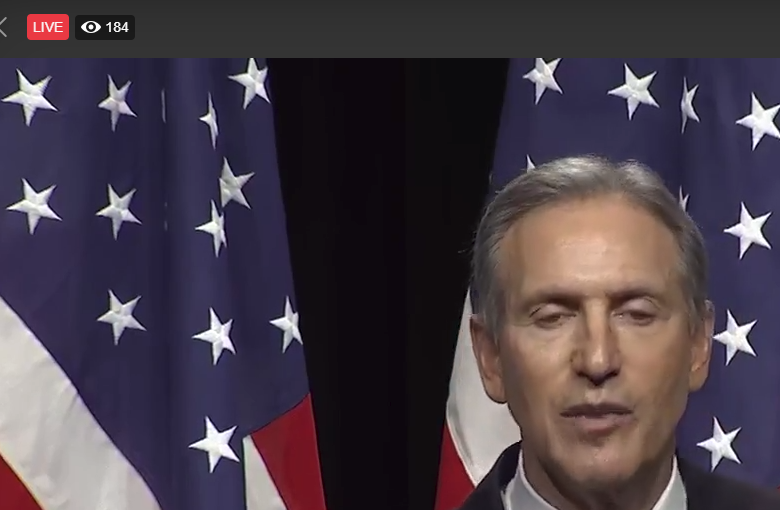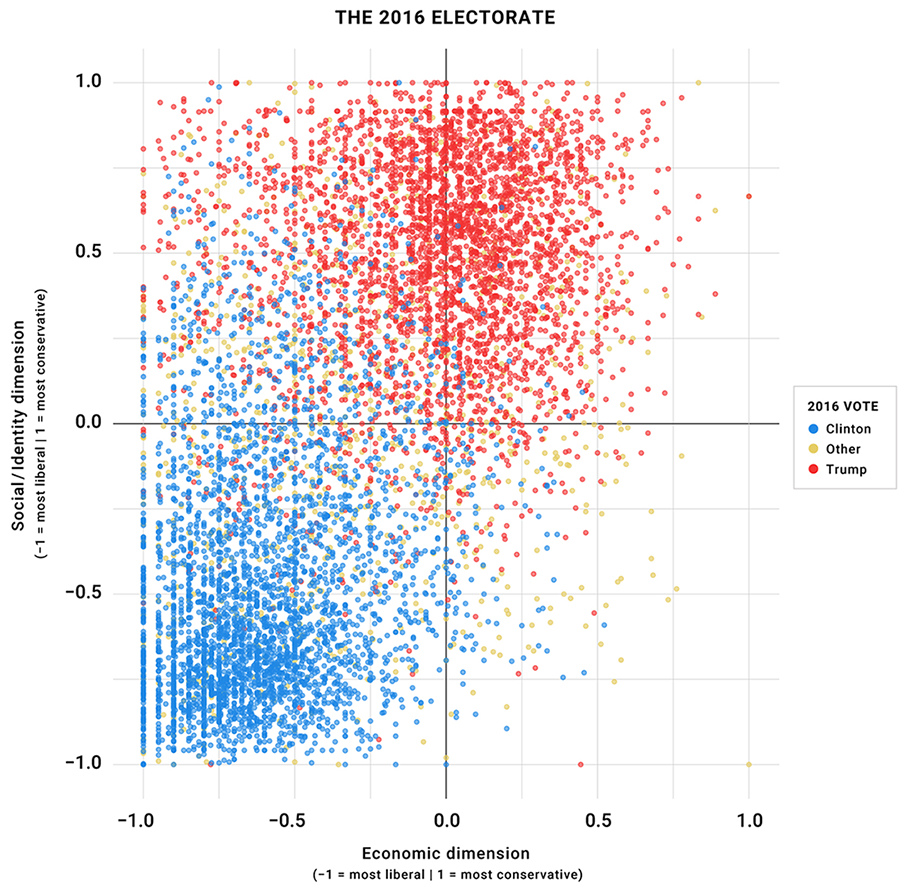Tens of people watched a “major policy address” by billionaire oligarch Howard Schultz on Thursday, in which the coffee mogul claimed he could fix the country with platitudes, vague ideas, and impressive-sounding adjectives.
Yet, while Schultz’s speech was heavy on words like “leadership,” “opportunity,” and attacks on the “far left” and the “far right,” the major policy address contained virtually no policy ideas whatsoever.

Schultz said that we need “a simple, sensible, holistic approach to education reform,” but offered no details whatsoever about what such reform might look like beyond shouting out a few colleges that he thinks have done good work. He railed against “gerrymandering,” but offered no solutions at all to this problem. He warned of a “crisis level of federal debt,” but his only solution to this supposed problem sounds like a parody of centrist punditry — “what it will take is something sorely missed in Washington, DC these days,” the oligarch proclaimed. “And that’s leadership.”
“Leadership,” the self-described “person of means” told an audience at Purdue University, “is about bringing talented, intelligent people together to solve problems” — as if no one has thought about getting a bunch of smart people together in a room before Howard Schultz graced the world with this novel idea.
When Schultz did offer specific policy ideas, he often seemed not to understand the difference between acknowledging a problem and proposing a solution. The Schultz health plan, for example, calls for a system that will “increase competition,” foster “price transparency,” and place more emphasis on “preventive care.” How will he do these things? Will he offer subsidies to primary health providers? Fund training programs for nurse practitioners? Appoint regulators to monitor hospital bills? Add a public health plan to the Affordable Care Act’s exchanges? Require insurers to cover out-of-network providers?
No one knows the answers to these questions, and Schultz gave no hints whatsoever. He appeared oblivious to the notion that the details of health policy matter.
Similarly, the Schultz jobs plan is to “invest in lifelong learning” and “increase access to vocational training and apprenticeships.” How will Schultz identify what sort of skills should be taught in these programs? He doesn’t say. Nor does he address intractable problems such as how to bring jobs to economically depressed communities where no work is available even to people with highly marketable skills. Schultz’s answer to a 50-year-old coal miner who just lost the only job he’s ever had is “learn to code.”
On those rare occasions where Schultz paid lip service to specific policies, he didn’t so much pose innovative new ideas as much as he joined with the longstanding consensus as a new and relatively superfluous member. Today, Schultz endorsed immigration proposals built on ideas like “border security” and “citizenship for DREAMers” that Democrats have been trying to enact for many years. Similarly, Schultz agreed that everyone who buys a gun should be subject to a background check, an ancient Democratic party priority.
For the most part, however, Schultz’s vision is that he can save America with vague bromides plucked from bargain-basement management seminars. The “American people are longing for honesty,” he proclaimed. Politicians are “mired” in “revenge politics,” according to Schultz. People need “opportunity, real opportunity.”
Given that Schultz has few policy ideas, and given that those few ideas he does share exist at an extraordinary level of generality, it’s easy to wonder why he’s considering a presidential run in the first place. Schultz’s answer is that America needs him to be the savior that Democrats are unwilling to provide.
“Trump must not serve a second term,” the spoiler candidate claimed, adding that “given the choice between him and a far left Democrat, I believe Trump would win election.”
Schultz may believe that, but he would do well to confront some data before making such bold claims. As a seminal study of the 2016 electorate shows, there is no appetite in the United States for the kind of socially liberal, fiscally conservative campaign Schultz offers.

Similarly, polls show that Schultz has no realistic path to the presidency, but that Schultz’s candidacy makes it far more likely that he will reelect Donald Trump. As one recent poll shows, “the 65-year-old Seattle billionaire is drawing 7.7 percent of voters overall, but pulls twice as much support from Democrats (11.6 percent) as Republicans (5.6 percent).”
Schultz claimed in his speech that his “final decision” to run or not to run “must not make [Trump’s] reelection a possibility.” If he is serious about that statement, he should abandon this quixotic and poorly thought-out presidential caper.
If, on the other hand, he’s more interested in helping reelect a president who will protect the interests of billionaire oligarchs like himself, the best thing Schultz can do is to stay in the race.
